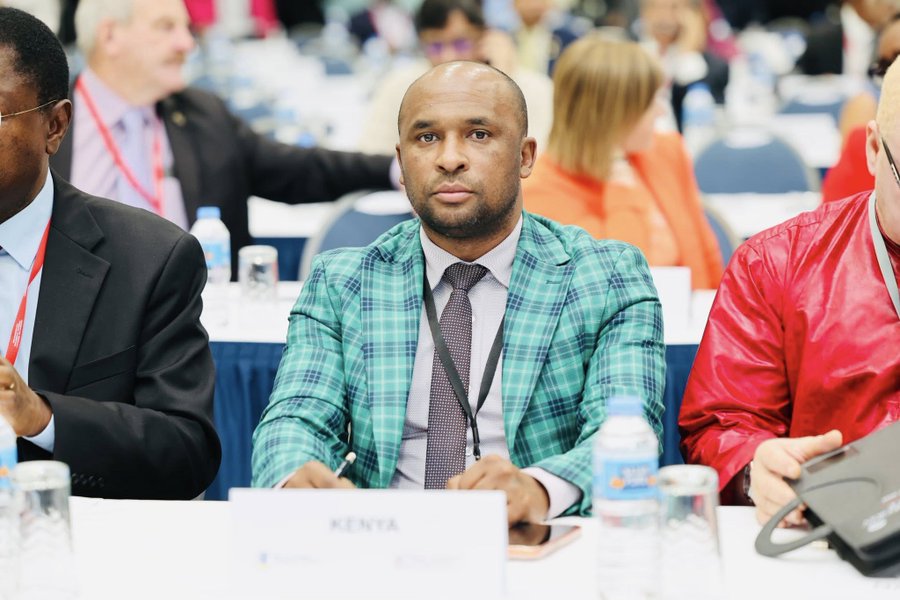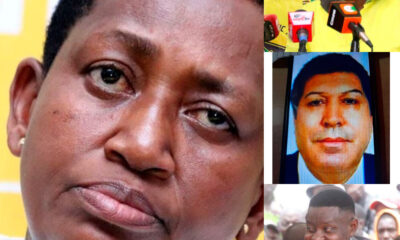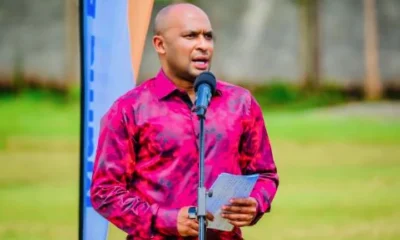News
‘Wash Wash’ MP’s War on Bloggers: Jhanda’s Audacious Bill to Muzzle Social Media
The controversial legislator, whose own rise to political prominence has been shadowed by whispers and allegations, now wants to play gatekeeper to who gets to speak and who doesn’t in Kenya’s increasingly powerful social media landscape.

In a move that reeks of desperation and control, Nyaribari Chache Member of Parliament Zaheer Jhanda has declared war on Kenya’s vibrant digital space, announcing plans to sponsor a bill that would force influencers and content creators to hold university degrees before they can speak on professional matters online.
The controversial legislator, whose own rise to political prominence has been shadowed by whispers and allegations, now wants to play gatekeeper to who gets to speak and who doesn’t in Kenya’s increasingly powerful social media landscape.
On Tuesday, Jhanda boldly declared that his upcoming bill would require influencers discussing law, finance, health, or education to possess relevant degrees and recognition from professional bodies like the Law Society of Kenya, ICPAK, and the Media Council of Kenya.
“We cannot have a country where everyone is an expert,” Jhanda proclaimed, seemingly oblivious to the irony of a politician attempting to regulate an industry he barely understands.
The MP claims he’s borrowing from China’s draconian internet control playbook, citing new regulations that supposedly require influencers to prove their expertise before posting about sensitive topics. Never mind that these Chinese laws don’t actually exist in statute yet and must still be approved by the National People’s Congress. Details, apparently, are merely suggestions when you’re on a mission to control the narrative.
What Jhanda conveniently glosses over is that China’s internet regulations are part of a broader authoritarian framework designed to suppress dissent and control information flow in a nation of over a billion people. Now he wants Kenya to follow suit, packaging censorship as consumer protection.
The proposed law would compel content creators to display their academic credentials on their profiles when discussing professional matters, effectively creating a two-tier digital class system where only the formally educated elite can participate in important conversations. Self-taught experts, community leaders with decades of practical experience, and citizen journalists who’ve been exposing corruption and holding power to account would all be silenced.
Critics are already calling out the obvious: this is less about protecting Kenyans from misinformation and more about controlling a digital space that has become increasingly hostile to politicians caught with their hands in the cookie jar. Social media has been the great equalizer, giving ordinary Kenyans the power to question, challenge, and expose their leaders. No wonder some in Parliament are scrambling to rein it in.
The timing is particularly suspicious. As Kenya grapples with real issues like economic hardship, corruption scandals, and governance failures, Jhanda has chosen to target the very platforms where these conversations are happening most vigorously. One can’t help but wonder whose interests this bill really serves.
Kenyans online have already begun dissecting the proposal, with many pointing out the absurdity of requiring a law degree to discuss legal matters online while MPs with questionable academic credentials regularly pontificate on complex policy issues in Parliament. The double standard is glaring.
If this bill passes, Kenya would become one of the first African countries to impose such draconian academic requirements on digital content creators, a dubious distinction that would position the country alongside authoritarian regimes rather than the democratic nations it claims to emulate.
The real question Kenyans should be asking is this: why is an MP more concerned about regulating bloggers than fixing the country’s pressing problems? Perhaps because when the people are busy debating degree requirements, they’re not asking harder questions about how their leaders acquired their wealth or why campaign promises remain unfulfilled.
Jhanda’s bill is a solution in search of a problem, a sledgehammer approach to what requires nuance and genuine engagement with digital literacy. Kenya already has cybercrime laws that address misinformation and fraudulent content. What it doesn’t need is yet another mechanism for politicians to control public discourse and silence inconvenient voices.
As this proposal makes its way through Parliament, Kenyans would do well to remember that the freedom to speak, to question, and to hold power accountable is not a privilege granted by politicians. It’s a constitutional right that must be fiercely protected, especially when those in power are working overtime to take it away.
Kenya Insights allows guest blogging, if you want to be published on Kenya’s most authoritative and accurate blog, have an expose, news TIPS, story angles, human interest stories, drop us an email on [email protected] or via Telegram
-

 News2 weeks ago
News2 weeks agoTHE FIRM IN THE DOCK: How Kaplan and Stratton Became the Most Scrutinised Law Firm in Kenya
-

 Economy2 weeks ago
Economy2 weeks agoIran Demands Arrest, Prosecution Of Kenya’s Cup of Joe Director Director Over Sh2.6 Billion Tea Fraud
-

 Grapevine1 week ago
Grapevine1 week agoA UN Director Based in Nairobi Was Deep in an Intimate Friendship With Epstein — He Even Sent Her a Sex Toy
-

 Politics2 weeks ago
Politics2 weeks agoPresident Ruto and Uhuru Reportedly Gets In A Heated Argument In A Closed-Door Meeting With Ethiopian PM Abiy Ahmed
-

 Investigations1 week ago
Investigations1 week agoHow Mexico Drug Lord’s Girlfriend Gave Him Away
-

 Business2 weeks ago
Business2 weeks agoSafaricom Faces Avalanche of Lawsuits Over Data Privacy as Acquitted Student Demands Sh200mn Compensation in 48 Hours
-

 Investigations2 weeks ago
Investigations2 weeks agoKenya’s DCI Opens Probe on Russian Man Who Secretly Filmed Sex Escapades With Women — But There’s a Slim Chance They’ll Ever Get Him
-

 Investigations1 week ago
Investigations1 week agoHow Close Ruto Allies Make Billions From Affordable Housing Deals























